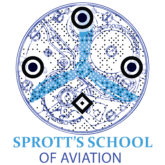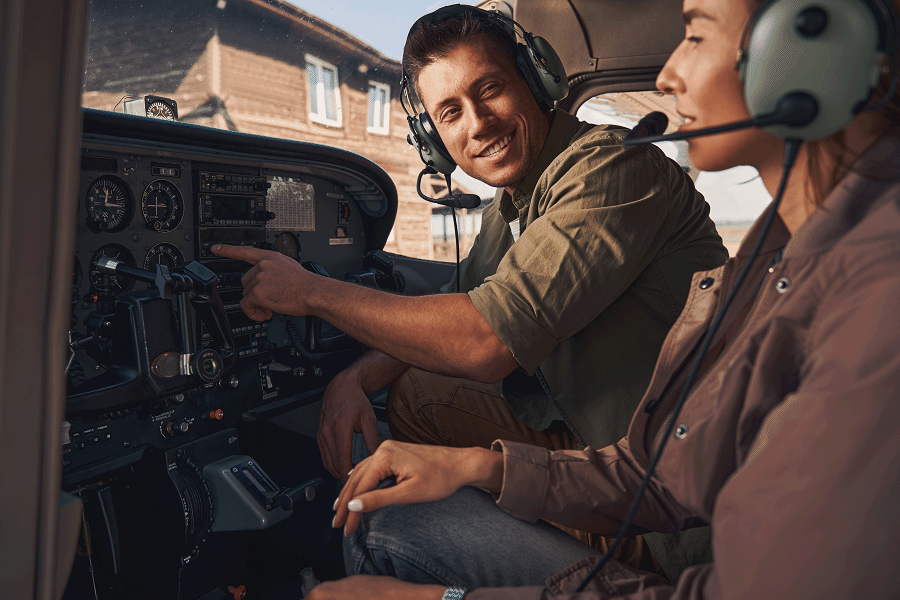There’s something to be said about working with your hands. Doing something blue-collar is idolized by most people in the world today. This is furthered after getting out of the military because it just feels right.
Working with your hands on something as incredible as the engineering marvel of an aircraft is even better though. Aviation marks the highest degree of human ingenuity and design as far as engineering goes. But now you don’t have to be a pilot or a flight attendant to work in aviation. You also don’t need to date a pilot or flight attendant to reap the incredible benefits offered by most airlines…unless you want to. There is another option to being in aviation: Being in the aviation maintenance department.
If the idea of making a difference while also working with something that just makes sense (aircraft design I mean) sounds like the ideal work environment for you, then you will come to find there are multiple options to become certified in working on aircraft.
The three biggest are the NCATT (National Center for Aerospace & Transportation Technologies) AET (Aircraft Electronics Technician), GROL (General Radiotelephone Operator License), and the A&P (Airframe and Powerplant) License.
There are many more than just that, but these three are the main ones that people choose to get involved when in the world of aviation. Plus, any of these can get you enough money to be able to get your pilot’s license and buy and maintain your own aircraft.
NCATT AET Certificate
If you are electronically inclined, then this might be the best certificate for you. It’s all about being able to work with the electronic aspects of aircraft. It’s literally called the Aircraft Electronics Technician certification, so it kind of gives it away.
In modern aircraft, things are becoming more and more electronically powered. When dealing with general aviation aircraft, they like to operate on a more mechanical basis. A pulley and lever system to control the aircraft.
Bigger aircraft, and more technologically advanced aircraft like the Airbus airliners or the Cirrus SR22 for example, operate on a more fly-by-wire system that is operated by—you guessed it—electronics.
As aircraft become more advanced, there are more and more aircraft operating with higher levels of technology, so there will pretty much always be a job for someone with the NCATT AET certificate.
✈️ Register for the NCATT AET Certification Program
📚 Explore All Certification Courses
If there’s anything the pandemic taught us, it’s that aviation will continue pretty much no matter what. When commercial aviation began to decline due to travel bans, private and corporate picked up. Aircraft electronics technicians will always be needed, so this is a smart route to go. The certificate lasts up to 5 years before it becomes necessary for renewal. The course is only a week long, so it’s definitely worth it.
GROL
It’s crazy to think some people have radios as a hobby when they could be using them to make money and have fun. The General Radiotelephone Operator License (GROL) is how you could be doing exactly that.
📡 Register for the GROL License Training Course
Radios are interesting. The way they work is extremely complex, but it’s really interesting. They literally send a signal through the air that will continue on in perpetuity.
Now, in order to get the necessary license to work on these incredible pieces of machinery, you have to pass the FCC GROL exam. This is one of the few cases where there is a license that lasts in perpetuity like the radio waves.
That means you only have to take the course and pass the test a single time. You can then work on radios until you become a senile old person or simply lose interest.
On top of that, the FCC GROL course is offered online and is self-paced. It amounts to only 2 days total time, making it a quick and convenient license that will last for a long time.
The earning potential doesn’t stop with aircraft though. The GROL also has the same authority as the Marine Radio Operator Permit (MP), giving you myriad more options for employment.
Plus, boats are fun too. There’s nothing like casting a line out on the lake while sipping a cold one.
A&P License
The Airframe and Powerplant (A&P) License is pretty much the king of licenses for aviation mechanics. It gives you the ability to work on almost every part of an aircraft—namely the powerplant (engine) and airframe (structure) of an aircraft.
🛠 Register for A&P Certification
With the A&P license, you aren’t required to have any other certificates; however, you still are required to have the correct training on how to work on avionics and aircraft electronics. This will also usually require specialized tools and training, so keep that in mind.
To acquire an A&P license, there are two routes:
By attending an FAA-approved aviation mechanic school. These will ALWAYS fit FAR part 147 and can be completely done in 12 to 24 months’ time.
Work at an FAA repair station or an FBO under the supervision of a certified mechanic for 18 months.
Typically, you will have higher pay if you go through an FAA-approved program. Regardless, there are so many potential jobs, and your pay will primarily be dependent on the quality of your work in conjunction with the demand for certified aviation mechanics.
Which Certificate Should I Get?
The ultimate deciding factor is going to be all about what you want to do. Of course, you can read any and all recommendations online.
This is more of a personal choice than that. There are benefits to all of them, but the A&P is the main license needed in order to work on aircraft of any sort. If you have the A&P license, you can work on almost anything on an aircraft. It’s just radios that will avert your mechanical prowess.
This might sound like a no-brainer, but if you get any of these certificates, you can always get more as time goes on. In fact, that might be the most favorable option because it makes you more employable in the aviation industry.
Just think about it as an employer: if you can hire an A&P or an A&P that also has their GROL certification, then who would you choose?
One is good, but more is better—especially when it comes to technical aviation education.


